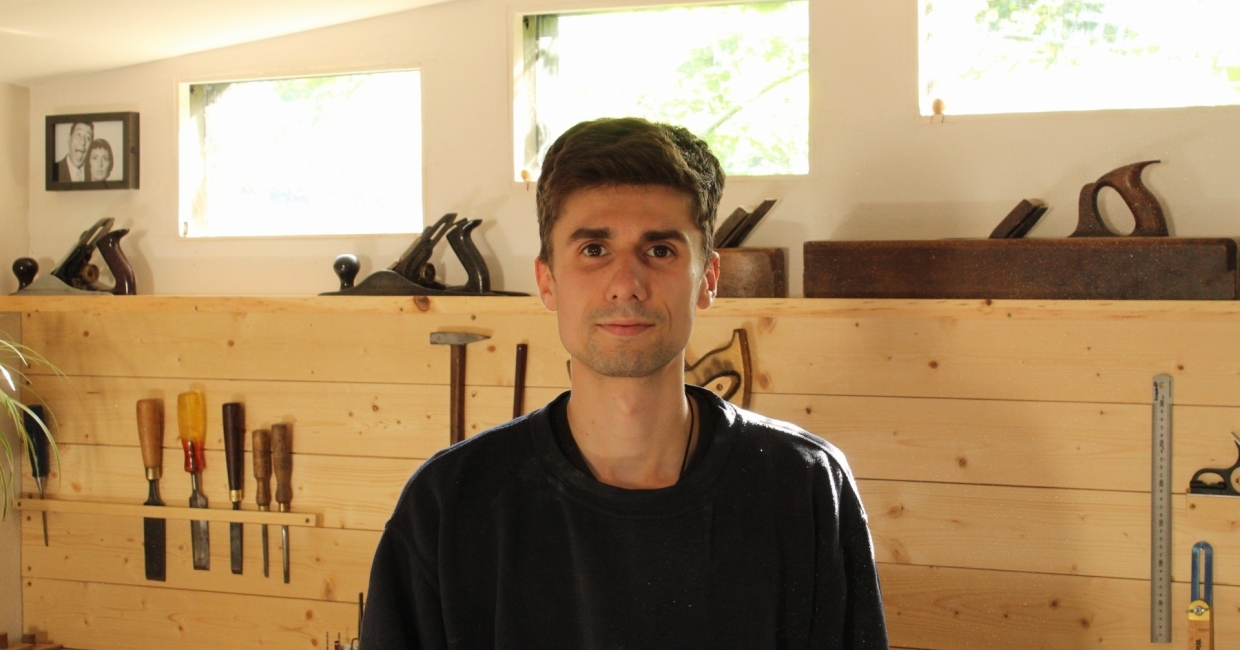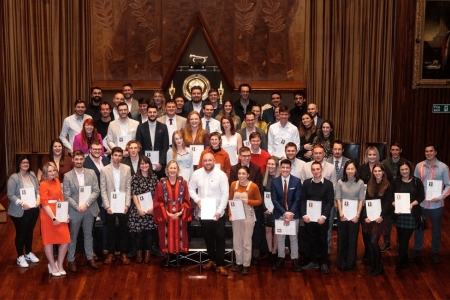To mark its 60th anniversary, The Furniture Makers’ Company looked to the future by highlighting 60 of the industry’s most promising young professionals (aged under 35) through its ‘60 for 60’ campaign. To discover how they view the trade, Furniture News is inviting these rising stars to share their stories – this month, our quickfire questions go to furnituremaker and tutor, Jarrad Belton.
In one sentence, describe what you do …
I create unique, statement-piece furniture using sustainable timber from well-managed forests. I also teach students in the way of the blade at the Farnham School of Furniture Making.
What makes you well suited to the role?
I am incredibly passionate about what I do for a living, and being able to impart that with others is one of the great rewards of my role.
How did you come to work in the furniture industry?
It would seem fate. I was originally considering training as a motorcycle mechanic when I left school, but when I viewed the college, the mechanic workshop felt cold and dark. I happened to walk past the carpentry workshop which was bright, warm and full of the sound of handsaws cutting and the smell of fresh plane shavings. It was much more attractive to me – I was completely enraptured.
It was from that day on I trained as a carpenter, working part time whilst studying. I enjoyed the first two years so much I stayed on for a third year of joinery, which wasn’t compulsory.
After then, working on site as a carpenter for a number of years, I discovered that I wanted more refinement to my work. I saved up enough money working part time at a local sawmill where I gained fundamental knowledge of timber, and then proceeded to pay to restudy furnituremaking (I was probably around 20 at this time). I had built up a small portfolio of work before retraining, so when I went for the interview at the college I was put in for the third year rather than starting from the beginning. I was thrown in at the deep end, but, as a wise person once told me, “a calm sea never made a good sailor.”
I thoroughly enjoyed my time in college, and after completing the course I went back to the sawmill part time for two days a week and then made furniture for the rest of the week, taking on as much commission work as I could and exhibiting at as many events as I could afford.
After building a name for myself, I left the sawmill and became self employed, making furniture for private clients and galleries. I then started work part time at weekends with a furnituremaker, Aidan McEvoy, in the craft town of Farnham. This led to me to now being an employed member of the company, and Aidan’s apprentice at the Farnham School of Furniture Making.
I absolutely love what I do for a living and feel so lucky to have found it so early in life. It is what I am most passionate about.
How has your career progressed since you started?
I have definitely improved my ability as a furnituremaker since I first started my journey, but I feel there is still much to learn. I am proud of what I have achieved with certain awards and shortlisted pieces, but there are still many pieces I need to challenge myself with.
Where do you want to be in five years’ time?
Making furniture to a higher level.
What’s been the biggest surprise in how the industry operates?
The lack of appreciation for where the trees we use actually come from. As a finite resource, it is crucial that we manage and use our woodlands accordingly. Organisations like Grown in Britain are doing a wonderful job of leading this topic, but more needs to be done. We as furnituremakers need to have an understanding of what trees we are using, and if it is truly a sustainable practise.
What does being named one of the ‘60 for 60’ mean to you?
I’m stoked! I feel very grateful to have my dedication to the craft recognised. I think it’s super important to celebrate the up-and-coming craftspeople of furnituremaking, and being able to network with likeminded individuals at the ‘60 for 60’ event was incredibly beneficial.
What would you say to encourage others to join the industry?
If you’re interested in the craft, then jump at it with everything you can. Don’t become a furnituremaker to seek wealth or fame, do it for the love of the craft. If you can pursue passion over money, you will be at home in the industry of furnituremaking – it’s important to have enthused people pioneering the next generation.
Find out more about the ‘60 for 60’ stars at www.furnituremakers.org.uk/60for60.












